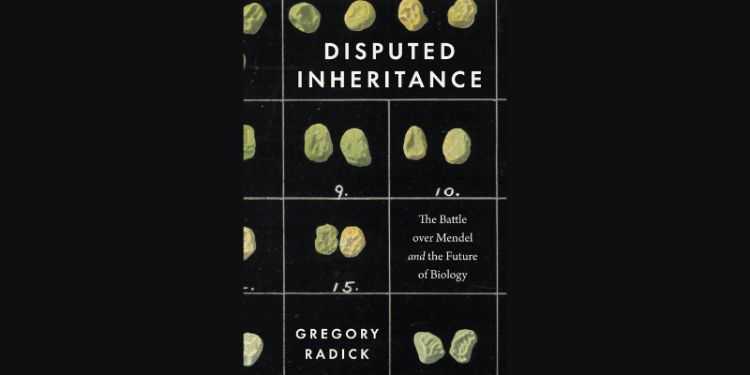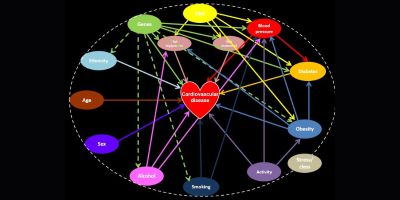Gregory Radick’s “milestone” history of genetics shortlisted for Pickstone Prize

Disputed Inheritance has been shortlisted for a major book prize from the British Society for the History of Science
Disputed Inheritance: The Battle over Mendel and the Future of Biology by Gregory Radick, Professor of History and Philosophy of Science at the University of Leeds, has been shortlisted for the 2024 Pickstone Prize from the British Society for the History of Science. The prize is awarded biennially for the best academic book in English in the general field of the history of science, technology and medicine.
Published in 2023 by the University of Chicago Press, Disputed Inheritance presents a new history of the early-twentieth-century debate now known as the “biometrician–Mendelian controversy.” On the one side were the Mendelians, led by the Cambridge biologist William Bateson, who championed Gregor Mendel’s 1866 paper on the crossing of pea varieties as a scientifically and socially revolutionary basis for understanding heredity. On the other side, the most formidable and far-reaching critique of nascent “Mendelism” came from the Oxford biologist Walter Frank Raphael Weldon. Weldon objected above all to the Mendelian sidelining of the role of environments in the making and modifying of inherited characters.
Bateson won, with the result that the body of knowledge he renamed “genetics” came to be organized around the Mendelian entity par excellence, the character-making gene. Even now, in the era of epigenetics and post-genomics, when the modifying role of environments, internal and external, and the variability that they produce, are ubiquitous themes in biology, beginning students learn that a pea seed is yellow or green, or a child will suffer from sickle-cell disease or not, depending only on which gene variants are present at a single location on a single chromosome pair.
Yet this persistently Mendelian organization was not, Prof. Radick suggests, inevitable. On the contrary, it was an accident of history, namely Weldon’s dying suddenly and unexpectedly from pneumonia in the spring of 1906, at the age of forty-six. Had Weldon instead lived long enough to publish the book on heredity that he was near to completing, his contrasting emphases – on variability beyond the binary as the norm, and on the richly context-dependent interactions which bring about that variability – could well have become the building blocks of genetic knowledge, with consequences for everything from education to eugenics.
An unusual aspect of Disputed Inheritance is its exploration of what might be called “evidence-based counterfactual history.” To test the claim that a distinctive Weldonian science of heredity could have been viable, Prof. Radick and his collaborators at Leeds developed an introductory curriculum in genetics as if it had come from the alternative history in which Weldon had lived to publish his book. They then taught the curriculum and assessed their students’ attitudes to genes-are-destiny determinism before and after teaching. As reported in Nature and then more fully in Science and Education, whereas students taught a traditional Mendelian curriculum were found on average to be just as deterministic about genes at the end of teaching as at the start, students taught the Weldonian curriculum were on average less deterministic.
A public lecture that Prof. Radick gave recently at the Francis Crick Institute in London on Disputed Inheritance can be viewed here (go to 4:20 for the introductions and 9:50 for the lecture). The book has also featured in several podcasts, including Complexity (from the Santa Fe Institute), The Dissenter and Genetics Unzipped. A recent review in a history-of-science journal described the book as marking “a new milestone in the historiography of this famous episode” (Laurent Loison, Revue d’Histoire des Sciences).
The winner of the 2024 Pickstone Prize will be announced at the British Society for the History of Science’s 2024 annual conference, held in Aberystwyth 10-13 July.




